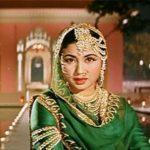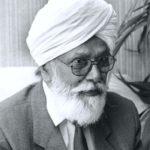Contents
This Day in History on 1 August
The historical events hold a lot of value for aspirants who are sitting for UPSC competitive exams including the IAS Exam.
On this page, we will list all historical events that occurred on 1 August. The students can refer to them while preparing for all competitive exams and banking exams.
Important Days

World Scout Scarf Day
Important Events
1774: British scientist Joseph Priestley discovered oxygen gas, corroborating the prior discovery of this element by German-Swedish chemist Carl Wilhelm Scheele.
1672: The East India Company and the English law were for the first time introduced in India. It was set up as directed by the Court of Judicature.
1774: British scientist Joseph Priestley discovered oxygen gas, corroborating the prior discovery of this element by German-Swedish chemist Carl Wilhelm Scheele.
1876: Colorado became the 38th state of the United States.
1905: Horse-drawn tram cars were closed down in Bombay. This service was started on May 9, 1874, with 20 tram cars and 200 horses. On the very first day of its run, the number of passengers carried was 451 and the amount earned was Rs. 85/- on the last day it had 1360 horses and carried 71,947 passengers and earned Rs.4,260/.
1914: World War I – Germany declared war on Russia.
1916: Mrs Annie Besant in cooperation with Bal Gangadhar Tilak started the Home Rule League Movement with Dadabhai Naoroji as its President.
1920: Mahatma Gandhi started the Non-Cooperation Movement.
1920: Bipin Chandra Pal opposed the Non-Co-operation Movement and retired from politics, but the movement was approved by Congress.
1920: Under the leadership of Gandhi, the non-cooperation movement was launched against Lord Chelmsford. “Firmness in truth,” was his strategy of noncooperation and non-violence against India’s Christian British rulers. Later, he resolved to wear only ‘dhoti’ to preserve homespun cotton and simplicity, followed by grassroots agitation. This began with the renunciation of honorary titles like ‘Sir’ given by the British. Thereafter, it was followed by the boycott of legislatures, elections and other Government works. Foreign clothes were burnt and Khadi became a symbol of freedom. The movement was a great success despite firing and arrests. By the end of 1921, all important national leaders, except Gandhi, were in jail, along with 3000 others. However, in February 1922, at Chaurichaura, Uttar Pradesh, violence erupted and Gandhi called off the movement. He was imprisoned and the movement was over.
1920: Gandhiji addresses a letter to Viceroy surrendering “Kaisar-E-Hind” Medal, “Zulu War” Medal and “Boer War” Medal and launched the All India Non-Violent Non-Coperation Movement.
1920: Kirloskar, a monthly magazine, was published.
1939: Bombay begins Prohibition, the first since U.S. law was repealed.
1944: World War II – An armed uprising against the Nazis erupts in the Polish capital, Warsaw.
1947: Partition of India into India and Pakistan. Power transferred. Lord Mountbatten becomes Governor General of India and Muhammed Ali Jinnah, Governor General of Pakistan.
1952: Nationalised Airways at Safdarjung, New Delhi inaugurated by Nehru.
1953: All Private Airlines were nationalised by the establishment of All Airlines India International.
1953: Bombay Government decides to abolish ”jagirs” in merged areas.
1957: Establishment of National Book Trust, India.
1957: M. K. Vellodi was appointed as the Cabinet Secretary of India. He held this office till 04-06-1958.
1958: Ramon Magsaysay Award for community leadership given to Acharya Bhave.
1960: Islamabad became the capital of Pakistan.
1962: Establishment of Maharashtra State Industrial Development Corporation.
1963: Soviets offer India arms to block China.
1964: Air Chief Marshal Arjan Singh, Padma Vibhushan, DFC. became the Air Officer Commanding, India Command. He was in this office till 15/07/1969.
1966: Himachal Pradesh Krishi Vishvavidyalaya (HPKV) was established at Palampur under the aegis of Punjab Agricultural University, Ludhiana, to cater to the need of hilly areas of erstwhile Punjab.
1970: Bhopal University was established.
1970: Former Beatle George Harrison led an all-star entourage of rock talent through two sold-out shows at New York’s Madison Square Garden tonight, in a benefit for Bangladesh refugees.
1986: Amnesty scheme for evaders of taxes announced.
1988: Air Chief Marshal Surinder Kumar Mehra PVSM, AVSM, VM, ADC., became the Air Officer Commanding, India Command. He was in this office till 31/July/1991.
1989: Kirti Vrajlal Ambani,Reliance executive, held in connection with a plot to kill Bombay Dyeing Chairman Nusli Wadia.
1990: Devi Lal, Dy. PM dropped from Union Cabinet following wild charges he made against colleagues in an interview with the ‘Illustrated Weekly’.
1992: Narasimha Rao, PM, dedicates Vizag Steel Plant to the nation.
1992: S. Rajgopal was appointed as the Cabinet Secretary of India. He held this office till 31-07-1993.
1993: Air Chief Marshal Swaroop Krishna Kaul PVSM, MVC, ADC., became the Air Officer Commanding, India Command. He was in this office till 31/Dec/1995.
1993: Dr. K. N. Raju, a Nilakantan protegee, assumes office as NAL’s fourth Director.
1994: Surendra Singh was appointed as the Cabinet Secretary of India. He held this office till 31-07-1996.
1994: The Railway passenger insurance scheme comes into force.
1995: Vohra Panel submits report, highlights nexus between mafia and politicians.
1996: Madhu Dandavate is made Dy. Chairman, Planning Commission.
1996: T. S. R. Subramaniam was appointed as the Cabinet Secretary of India. He held this office till 31-03-1998.
1997: Viswanathan Anand wins the Credit Suisse Masters chess tournament in Beil.
1997: Lt. Gen. Ved Prakash Malik to be next chief of Army staff. Gen. Shankar Roy Chowdhury retires on September 30.
1997: Nitin Mongia wins Laser standard in the sailing championship in Hyderabad.
1998: The DMK condemns the BJP-led coalition Government’s decision to set up a Multi-Disciplinary Monitoring Agency and rejects the Action Taken Report on the final report of the Jain Commission with reference to Mr M. Karunanidhi.
2000: Lt. Gen. Padmanabhan to be new Army chief replacing Gen. V. P. Malik.
2000: The Lok Sabha adopts Uttar Pradesh State Reorganisation Bill paving the way for the creation of Uttaranchal the 27th State.
2000: 27 ‘yatris’ (travelers) die after militants attack a ”langar” in a Pahalgam health resort en route to the Amarnath cave shrine.
2004: A supermarket fire kills 396 people and injures 500 others in Asunción, Paraguay.
2007: The I-35W Mississippi River bridge spanning the Mississippi River in Minneapolis, Minnesota, collapses during the evening rush hour, killing 13 people and injuring 145.
2008: Eleven climbers died on K2, the second-highest peak in the world.
2008: The Beijing–Tianjin Intercity Railway begins operation as the fastest commuter rail system in the world.
2008: Eleven mountaineers from international expeditions died on K2, the second-highest mountain on Earth in the worst single accident in the history of K2 mountaineering.
2017: A suicide attack on a mosque in Herat, Afghanistan kills 20 people.
Birth/Birth Anniversary

10 BC: Claudius, the Roman emperor.
1879: Achyut Balwant Kolhatkar, famous litterateur and journalist, was born.
1882: Purushottam Das Tandon, an Indian freedom fighter, great leader and editor, was born in Allahabad (U.P.).
1899: Kamala Nehru, an Indian independence activist and the wife of Jawaharlal Nehru. She was a great revolutionary freedom fighter and social worker.
1913: Bhagwan Dada, an Indian actor and film director.

1920: Annabhau Sathe, a social reformer, folk poet, and writer from Maharashtra, India.
1922: Ratilal Sankalchand Nayak, educationist and writer, was born in Kadi, Gujarat.
1927: Dr Rahi Masoom Raza, a famous Hindi litterateur, was born.
1931: Bhairabh Ganguly, cricket test umpire for 5 tests from 1981-85, was born in Bengal.
1933: Meena Kumari, an Indian film actress, and poet.
1948: Avi Arad, CEO, and founder of Marvel Studios.
1952: Yajurvindra Singh Jaswant Singh, cricketer (Indian batsman four Tests 1977-79), was born in Rajkot.
1955: Arun Lal, a cricketer (Indian batsman in sixteen Tests 1982-89), was born in Moradabad, U.P.
1987: Taapsee Pannu, an Indian actress.
1992: Mrunal Thakur, Indian actress

Death/ Death Anniversary
1137: Louis VI, King of France.
1846: Dwarkanath Tagore, a Hindu philanthropist, died in London.
1920: Bal Gangadhar Tilak, an Indian nationalist, teacher, and independence activist. He died in Bombay.

1993: Jananayak Debeswar Sarmah, a great freedom fighter, architect and nationalist, died at Jorhat, Assam.
1999: Nirad C. Chaudhuri, an Indian writer.
2008: Harkishan Singh Surjeet, an Indian Communist politician.
2008: Harkishan Singh Surjeet, Indian lawyer and politician (b. 1916)

